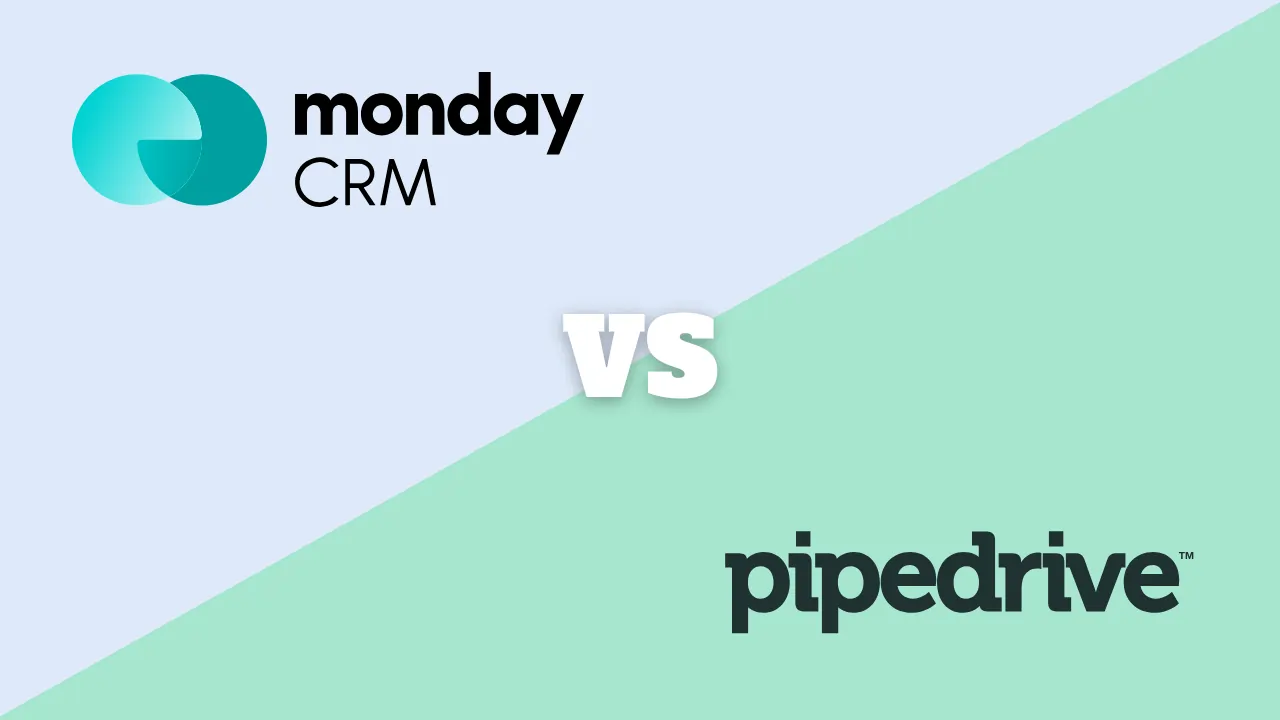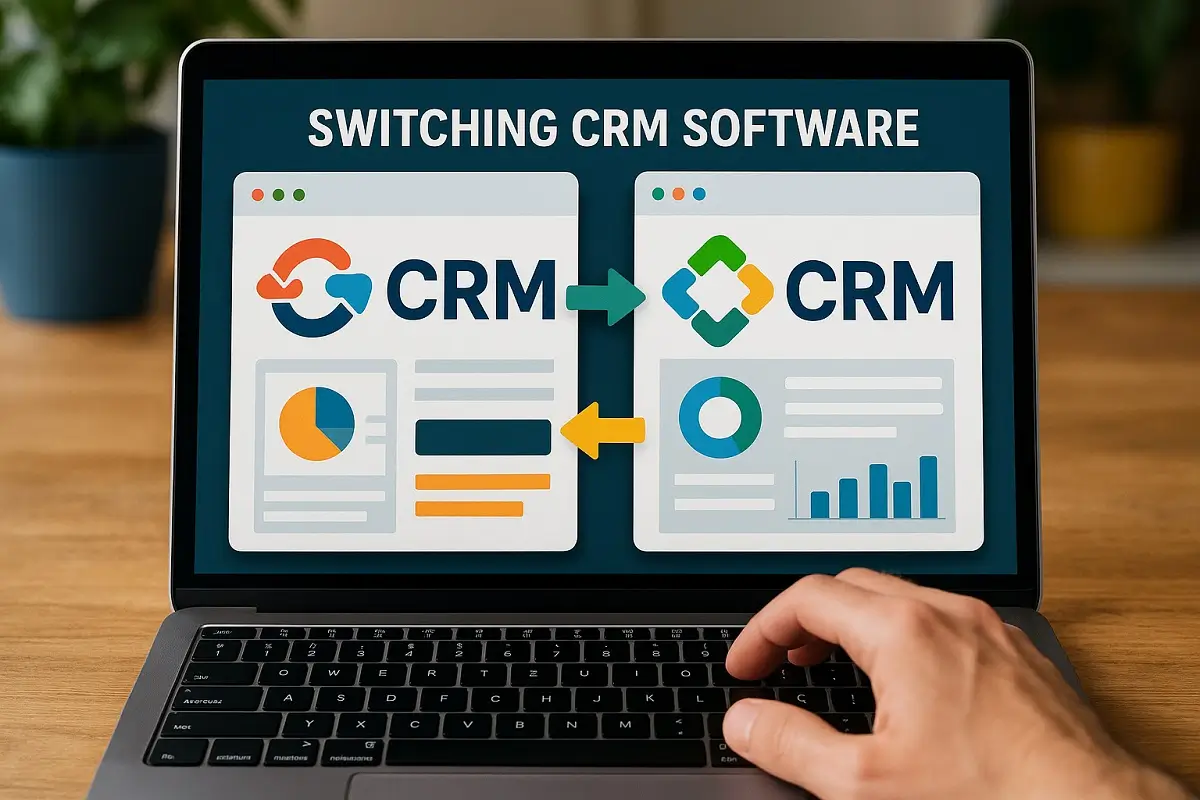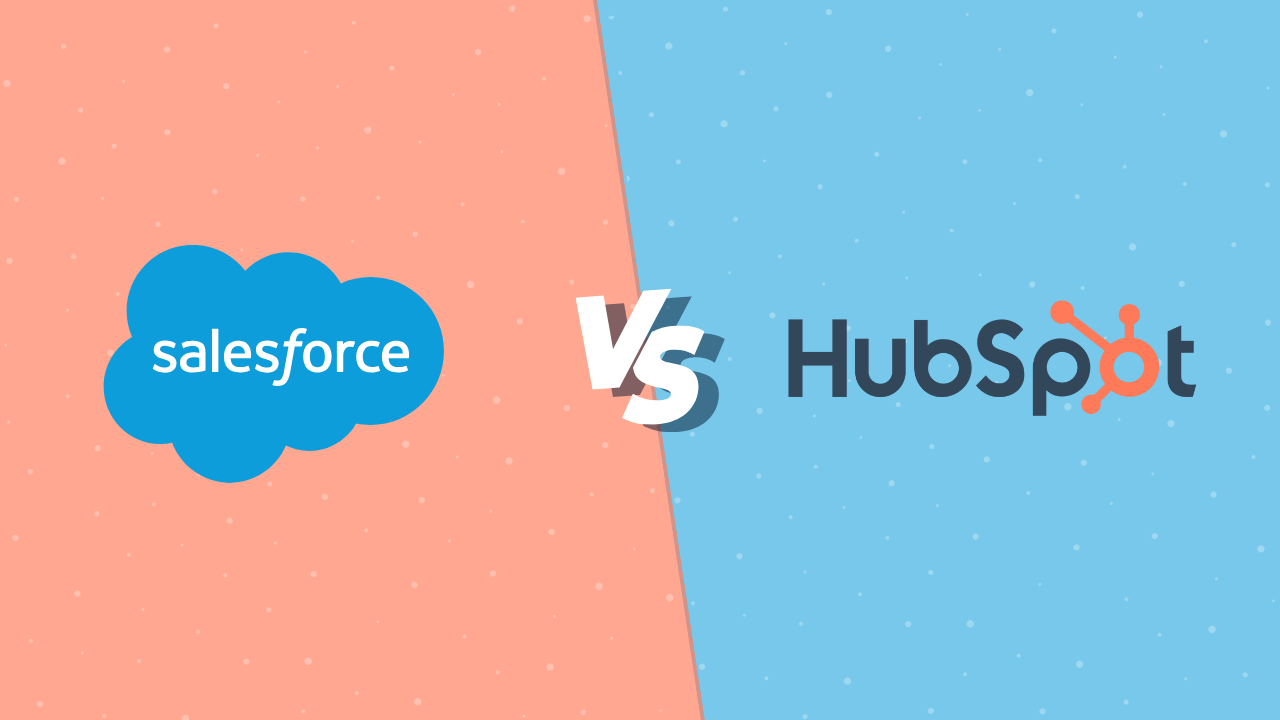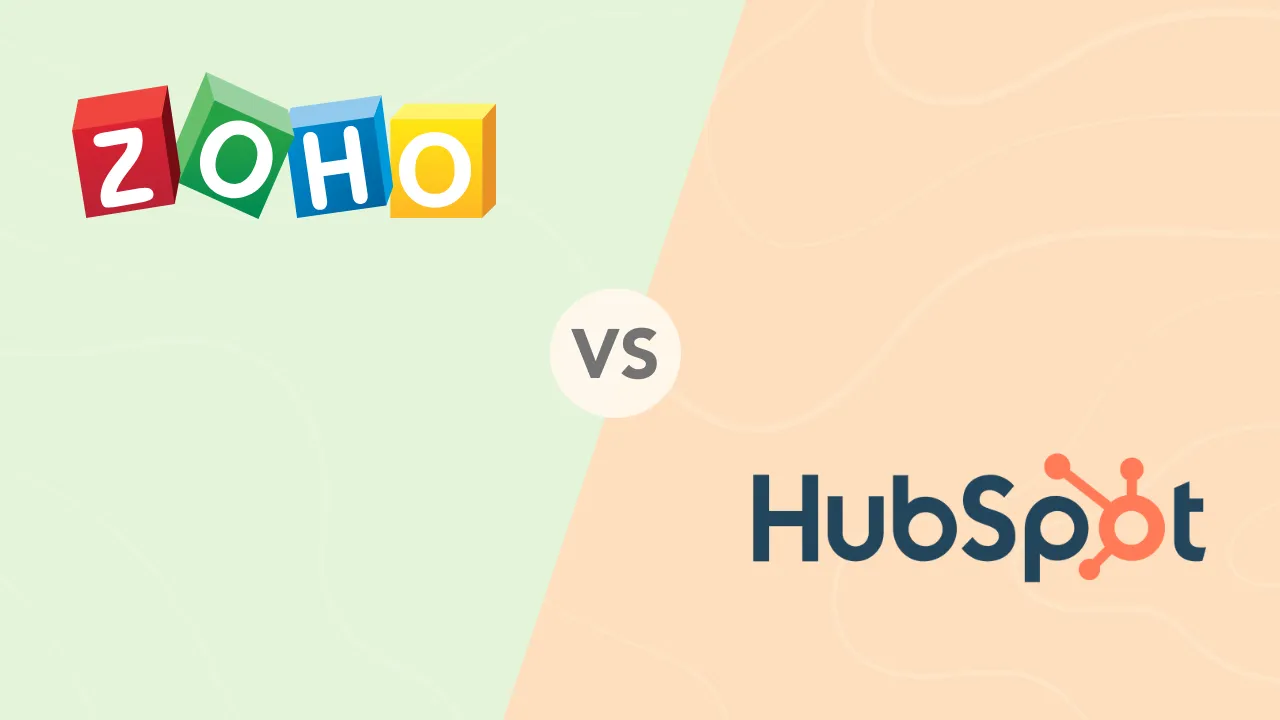Best CRM Software for 2025
Last updated: November 2025
For small and mid-sized businesses, managing customer relationships effectively is key to growth, and the right CRM software makes it easier to stay organized, close more deals, and build stronger connections. From tracking leads and automating follow-ups to managing sales pipelines and syncing with marketing tools, a CRM system can streamline your entire customer lifecycle.
- Sync emails to track client interactions
- Import leads with integrations
- No-code automation
- Unified platform for sales and marketing
- Track customer interactions in real time
- Customizable dashboards and reports
- Mobile app means you never miss a sale
- 300+ integrations enhance functionality
- Automate your entire sales process
- Track contacts & manage sales pipeline
- Get a complete view of every customer
- Einstein GPT boosts customer interactions
- Simple payments, contracts, and tasks
- Track progress with smart dashboards
- Smooth integrations: Quickbooks and more
- One of the easiest CRM to use
- Take action with real-time tracking
- Easy built-in communication tools
- InfoFlo integrates seamlessly with Outlook
- Trusted by over 20,000 companies
- Complete VoIP phone and SMS integration
- Automates the lead-to cash process
- Built to increase productivity all-around
- Forecasting & upsell made easy
- Increase sales with multichannel software
- In-depth analytics to track success
- Premium customer support
- One place for company-wide collaboration
- Real-time reporting
- 24/7 support
Customer Relationship Management (CRM) software serves as the central hub for managing all customer interactions. For a small or mid-sized business, it’s the difference between guessing who your customers are and knowing what they need. We reviewed over 25 top-rated CRM tools, evaluating them across 30+ criteria, including ease of use, pricing, automation capabilities, and integration potential. This guide narrows down the top 5 picks to help you find the best CRM software for your business. Whether you’re a solo founder tracking leads or a growing service team managing client support, there’s a CRM system tailored to your workflow.
List of The Top CRM Solutions:
Here are our top picks for CRM platforms for SMBs and growing companies looking for powerful tools, flexible plans, and affordable options:
- monday CRM – Best for customizable CRM with project management.
- HubSpot CRM – Best for small businesses needing a free CRM tool that scales.
- Pipedrive – Best for sales teams managing visual pipelines.
- Salesforce – Best for enterprises needing automation and AI-driven CRM.
- HoneyBook – Best for freelancers handling client communication and invoicing.
- Freshsales – Best for AI-powered lead scoring and sales tools.
- InfoFlo – Best for small businesses wanting offline CRM with one-time pricing.
- Oracle NetSuite CRM – Best for enterprises needing ERP-integrated CRM and analytics.
- Zoho CRM – Best for budget-friendly CRM with automation.
- ClickUp – Best for teams combining CRM with project management.
What Is CRM Software?
In plain English, CRM software is a tool that organizes all your customer information and interactions in one place. Think of it as your business’s digital address book, sales tracker, and communication log all in one.
It’s used to store contact details, track sales opportunities (your “pipeline”), log service issues, and manage marketing campaigns. This unified view enables your sales, marketing, and support teams to work together effectively, providing a better customer experience.
Key benefits include:
- Better lead management
- Streamlined sales pipelines
- Advanced reporting and analytics
- Personalized marketing automation
- Unified customer service tracking
- Ability to manage and analyze CRM records for better decision-making
Also known as: client management systems, sales CRMs, contact databases, customer data platforms (CDPs)
Quick Comparison Table: Best CRM Tools in 2025
| CRM Platform | Best For | AI Features | Custom Dashboards | Integrations | Free Plan |
| monday sales CRM | Small to mid teams | ❌ (rules-based only) | ✅ Highly visual UI | 200+ (Slack, Gmail, etc.) | ✅ |
| HubSpot CRM | Startups | ✅ AI recommendations | ✅ Drag-and-drop pipelines | 1,400+ (incl. Salesforce, Zapier) | ✅ |
| Pipedrive | Small to mid teams | ✅ Sales Assistant | ✅ Deal tracking | 300+ | ❌ |
| Salesforce Sales Cloud | Large enterprises | ✅ Einstein AI | ✅ Fully customizable | 3,000+ via AppExchange | ❌ |
| HoneyBook | Freelancers, small services | ❌ (basic workflows) | ✅ Client-based tracking | Limited native + Zapier | ✅ |
| Freshsales | All-in-one sales | ✅ Freddy AI | ✅ Revenue insights | 100+ | ✅ |
| InfoFlo CRM | Local businesses | ❌ | ✅ Desktop UI | Very limited (Outlook, QuickBooks) | ❌ |
| Oracle NetSuite CRM | Enterprise | ✅ Predictive AI | ✅ Executive dashboards | limited | ❌ |
| Zoho CRM | SMBs | ✅ Zia AI | ✅ Custom modules | 500+ integrations | ✅ |
| ClickUp | Hybrid task/ workflows | ❌ (automation only) | ✅ CRM-style views | 100+ (native & Zapier) | ✅ |
Top Reviews of CRM Software
Here’s a closer look at each CRM, highlighting why they’re considered the best CRMs for different business types:
monday sales CRM: Best for Visual Sales & Project Management






Features
General Features
Sales
Automation
Pros & Cons
Pros
Cons
-
Overview: A highly customizable CRM that integrates project management with sales workflows.
-
User Benefits:
- Visual dashboards make it easy to track sales progress.
- Automation reduces repetitive tasks, saving time.
- Flexible customization fits various business models.
- Flexible customization fits various business models.
- Easily create contacts and manage them within the platform, streamlining your workflow.
- Benefit: Enhances team collaboration and project tracking.
- Trial/Free Plan: Available
- Practical Example: A marketing agency can use Monday CRM to manage client projects while tracking leads in the same platform.
HubSpot CRM: Best Free CRM with Growth Potential






Features
General Features
Sales
Automation
Pros & Cons
Pros
Cons
- Overview: A popular free CRM solution ideal for small to mid-sized businesses.
- User Benefits:
- Centralizes contact management and sales pipeline tracking.
- Free tools for email marketing and customer engagement.
- Its intuitive interface simplifies sales management, making it easier for teams to handle sales processes efficiently.
- Integrates seamlessly with HubSpot’s marketing and service hubs.
- Helps businesses attract and manage new customers by organizing customer data and identifying sales opportunities.
- Benefit: Helps businesses scale without immediate investment.
- Trial/Free Plan: Yes – generous free CRM tool tier, plus free trials available for paid tiers
- Practical Example: A startup can use HubSpot CRM’s free tier to manage its growing customer base and attract new customers without incurring costs.
Pipedrive: Best for Sales-Only Teams






Features
General Features
Sales
Automation
Pros & Cons
Pros
Cons
-
Overview: A sales-focused CRM designed to streamline the sales pipeline.
-
User Benefits:
- Visual pipeline makes lead tracking intuitive.
- Automation features help follow up on leads effectively and generate leads through targeted campaigns.
- Track how leads interact with marketing content, sales pages, and sales reps for better segmentation and personalization.
- Log and manage sales calls within the platform to enhance direct communication and support sales processes.
- Strong reporting tools for performance tracking.
- Benefit: Increases sales team efficiency with focused workflows.
- Trial/Free Plan: 14-day free trial available
- Practical Example: A B2B sales team can use Pipedrive to manage complex sales cycles and prioritize hot leads.
Salesforce: Best for large enterprises and scalability






Features
General Features
Sales
Automation
Pros & Cons
Pros
Cons
-
Overview: A comprehensive CRM platform known for its scalability and extensive features.
User Benefits:
-
- Powerful automation and AI tools (Einstein AI) for lead scoring and forecasting. Salesforce leverages advanced CRM technology, including AI-driven insights, to enhance lead scoring and forecasting.
- Highly customizable to fit any industry.
- Large ecosystem of integrations and apps.
- Scales easily as your business grows, allowing you to add users or features as needed.
- Benefit: Enables global sales teams to collaborate efficiently.
- Trial/Free Plan: 30-day free trial available
- Practical Example: A large enterprise can use Salesforce to manage global sales teams and customer data across regions.
Related Articles
HoneyBook: Best CRM for Freelancers






Features
General Features
Sales
Automation
Pros & Cons
Pros
Cons
-
Overview: A CRM tailored for freelancers and service-based businesses.
-
User Benefits:
- Combines project management with client communication.
- Streamlines invoicing and payment collection.
- Easy-to-use templates for contracts and proposals.
- Benefit: Simplifies client management for service professionals.
- Trial/Free Plan: 7-day free trial
- Practical Example: A wedding planner can manage client bookings, contracts, and payments all within HoneyBook.
Freshsales: Best All-in-One CRM for SMBs






Features
General Features
Sales
Automation
Pros & Cons
Pros
Cons
-
Overview: A user-friendly CRM focusing on sales automation and lead management.
-
User Benefits:
- AI-driven lead scoring prioritizes high-value prospects.
- Integrated phone and email features streamline communication.
- Strong reporting tools for sales analysis.
- Benefit: Improves lead conversion rates through smart automation.
- Trial/Free Plan: Yes – offers a free CRM tool plan
- Practical Example: A SaaS company can use Freshsales to manage its sales funnel and improve conversion rates.
InfoFlo: Best for Simple, One-Time Payment CRM






Features
General Features
Sales
Pros & Cons
Pros
Cons
-
Overview: A simple, cost-effective CRM with a one-time purchase fee.
-
User Benefits:
- No recurring subscription fees.
- Offline access to customer data.
- Basic contact management and document sharing.
- Benefit: Provides an affordable solution for small businesses.
- Trial/Free Plan: No subscription required
- Practical Example: A small consulting firm can use InfoFlo to manage client contacts and project files without ongoing costs.
Oracle NetSuite CRM: Best for Enterprise-Level CRM and ERP






Features
General Features
Sales
Automation
Pros & Cons
Pros
Cons
-
Overview: An enterprise-level CRM with strong ERP integration.
-
User Benefits:
- Unified platform for sales, marketing, and ERP functions.
- Advanced reporting and analytics.
- Highly scalable for large organizations.
- Benefit: Supports complex business processes with integrated tools.
- Trial/Free Plan: On request
- Practical Example: A multinational corporation can use NetSuite to manage global operations and sales pipelines.
Zoho CRM: Best Budget CRM with AI






Features
General Features
Sales
Automation
Pros & Cons
Pros
Cons
-
Overview: A versatile and affordable CRM for small to mid-sized businesses.
-
User Benefits:
- Extensive automation options and AI-powered tools.
- Omnichannel communication capabilities.
- Highly customizable with numerous integrations.
- Benefit: Delivers enterprise-level features at an SMB price.
- Trial/Free Plan: Yes – free CRM tool available
- Practical Example: A real estate agency can use Zoho CRM to manage property listings, client interactions, and marketing campaigns.
ClickUp: Best for CRM Integration






Features
General Features
Sales
Automation
Pros & Cons
Pros
Cons
-
Overview: A multi-functional tool that combines project management and CRM capabilities.
-
User Benefits:
- Customizable pipelines for sales tracking.
- Integrated task and project management.
- Automation features streamline workflows.
- Benefit: Combines project management and CRM in a single platform.
- Trial/Free Plan: Yes
- Practical Example: A software development team can use ClickUp to manage client projects and sales leads in a single platform.
How to Choose the Best CRM Software
The best CRM software is the one that fits your workflow, not the one with the most features. When evaluating your options, focus on these real-world criteria:
- Ease of Use: If the CRM is complicated, your team won’t use it. Look for a clean interface, intuitive navigation, and a minimal learning curve.
- Integrations: Your CRM must connect to the tools you already use, like your email (Google Workspace, Outlook), calendar, and website. Check for a robust app marketplace.
- Scalability: Will this tool grow with you? A good CRM allows you to start simple and add more advanced features (like marketing automation or customer service tools) as your team expands.
- Pricing: Understand the cost per user, per month. Many CRMs have free or low-cost starter plans but get expensive as you add contacts or unlock essential features like automation.
- Support: When you have a problem, how quickly can you get help? Test the vendor’s support during your free trial. Look for phone support, live chat, and a comprehensive knowledge base.
- Mobile Access: If your team works on the go, a full-featured mobile app is essential for logging calls, checking pipelines, and managing contacts from anywhere.
Key features or capabilities to expect
While features vary, here are 4–8 core capabilities you should look for in any modern CRM.
Sales Tools
- Pipeline Visualization: A visual, drag-and-drop kanban board to see all your deals at a glance.
- Task & Activity Management: Tools to create and assign follow-up tasks, set reminders, and log calls or meetings.
- Sales Automation: Automatically send a welcome email to a new lead, or create a follow-up task when a deal stalls.
Marketing Tools
- Lead Capture: Web forms you can embed on your website to capture new leads directly into the CRM.
- Email Marketing: The ability to send one-off or automated email sequences to segments of your contacts.
- Lead Scoring: Many CRMs now use AI to automatically score leads based on their engagement, helping your team focus on the hottest prospects.
Service & Reporting
- Reporting Dashboards: Customizable reports to track key metrics like deals closed, revenue per rep, and sales cycle length.
- Contact History: A single, unified timeline of every interaction a customer has had with your business, from emails to support tickets.
Integrations and ecosystem
A CRM’s power is multiplied by its ecosystem. This is especially true for CRMs, which need to connect to your communication and finance tools.
- Email & Calendar: Look for deep integration with Google Workspace and Outlook 365. This allows you to log emails, sync meetings, and manage contacts without leaving your inbox.
- Third-Party App Marketplaces: Salesforce (AppExchange) and HubSpot have massive marketplaces with thousands of apps. This lets you connect tools for accounting, project management, and more.
- Native Suites: Some vendors, like Zoho and Freshworks, offer a full suite of business apps (helpdesk, marketing, finance) that are built to work together seamlessly.
- Device Compatibility: All top CRMs offer robust mobile apps for both iOS and Android, ensuring your team can access data from anywhere.
Benefits of Using CRM Software
- Improved Customer Relationships: CRM software helps businesses grow customer relationships by providing a connected, intelligent data platform that enables better understanding of customer needs, enhances experiences, and fosters loyalty.
- Increased Sales Productivity
- Enhanced Collaboration
- Data-Driven Insights
- Scalability for SMBs and Enterprises
- Cost Savings through Automation: Many CRM systems, especially those powered by AI, can automate routine tasks such as data entry, follow-up reminders, and customer segmentation, allowing teams to focus on higher-value activities and improving overall efficiency.
Cost Savings
Implementing a CRM system can lead to significant cost savings for businesses. By automating manual tasks and streamlining processes, businesses can reduce the time and resources spent on administrative tasks. This increased efficiency allows teams to focus on more strategic activities, such as developing new sales strategies or improving customer service. The reduction in manual workload not only saves time but also minimizes the risk of errors, leading to more accurate and reliable customer data management. Ultimately, a CRM system can help businesses operate more cost-effectively and achieve better financial performance.
Increasing Productivity with AI
CRM software can also increase productivity with the help of Artificial Intelligence (AI). AI-powered CRM tools can automate tasks such as data entry, lead scoring, and customer segmentation. This automation frees up sales teams to focus on high-value activities, such as building relationships and closing deals. For example, AI can analyze customer interactions to identify the most promising leads, allowing sales reps to prioritize their efforts more effectively. Additionally, AI-driven insights can help businesses tailor their marketing and sales strategies to better meet customer needs, further enhancing productivity and driving growth.
How much does a CRM cost?
Key buying considerationsWhen comparing plans, don’t just look at the sticker price; consider the total cost. Small businesses often overspend by paying for features they don’t need or getting locked into annual contracts for a tool their team won’t use.
Pricing Models:
- Per-User, Per-Month: This is the most common model. The price you see (e.g., “$14/user/month”) is multiplied by your number of users.
- Feature Tiers: All vendors lock their best features (especially automation and AI) behind more expensive “Pro” or “Enterprise” plans. Always check that the starter plan includes your “must-have” features.
- Free Plans: HubSpot, Zoho, and Freshsales offer excellent free plans. These are perfect for getting started, but be aware of their limitations (e.g., contact limits, feature caps).
Editor’s Picks:
- Best for Ease of Use: HubSpot. Its combination of a feature-rich free plan and a clean interface makes it the most approachable option for teams new to CRM.
- Best for Budget: Zoho CRM. If you need advanced features and automation for more than 3 users, Zoho’s paid plans offer the best value for money.
- Best for Growing Teams: Salesforce. It’s the most expensive and complex, but it’s the only platform on this list that a global enterprise can run on. You will never outgrow it.
Cost breakdown section
Here’s what you can expect to pay for CRM software in 2025:
-
Software Costs:
- Free Plans: $0. Usually limited to 1-3 users and basic contact management.
- Starter Plans: $9 – $25 per user/month. Good for small teams, offering basic pipeline management and some automation.
- Pro Plans: $39 – $100 per user/month. This is the sweet spot for growing teams, adding advanced automation, AI features, and better reporting.
- Add-Ons: Some CRMs charge extra for specific features. For example, HubSpot’s Marketing and Service Hubs are separate costs, and Salesforce charges extra for premium support.
- Implementation Fees: While most SMB-focused CRMs are self-setup, complex platforms like Salesforce may require a consultant for customization, which can be a significant one-time cost.
Key Features of a CRM
A CRM system typically includes a range of features that enable businesses to manage customer relationships effectively. Some of the key features of a CRM include:
- Contact Management: This feature allows businesses to store and manage customer contact information in one place, ensuring easy access and organization.
- Sales Pipeline Management: This feature enables businesses to track the progress of sales leads through the sales process, providing a clear view of the sales pipeline.
- Marketing Automation: This feature allows businesses to automate marketing campaigns and track their effectiveness, helping to optimize marketing efforts.
- Customer Service and Support: This feature enables businesses to manage customer service requests and provide support to customers, ensuring timely and effective resolution of issues.
- Project Management Features: This feature allows businesses to manage projects and tasks associated with each lead and client, ensuring that all activities are aligned and on track.
- Schedule Meetings: This feature allows businesses to schedule meetings with leads and customers directly from the CRM, streamlining the sales process and improving follow-up efficiency.
- Workflow Automation: This feature enables businesses to automate repetitive tasks and streamline processes, improving efficiency and reducing manual workload.
- Repeat Customers: This feature allows businesses to track and manage repeat customers, providing personalized service and fostering customer loyalty.
- CRM Features: This feature enables businesses to customize the CRM system to meet their specific needs, ensuring that the system aligns with their unique processes and requirements.
- Customer Support: This feature enables businesses to provide support to customers and manage customer service requests, ensuring high levels of customer satisfaction.
- Streamline Processes: This feature enables businesses to streamline processes and automate tasks, improving overall efficiency and productivity.
- Automate Processes: This feature enables businesses to automate repetitive tasks and streamline processes, reducing manual workload and increasing efficiency.
By implementing a CRM system, businesses can improve their customer relationships, increase productivity, and drive revenue growth. A well-chosen CRM platform can transform how a business operates, making it more efficient, responsive, and customer-focused.
Trends or emerging features (2025 insight)
The biggest trend shaping CRMs in 2025 is Artificial Intelligence. This isn’t just a gimmick; it’s fundamentally changing how sales teams work.
- AI Automation & Assistants: AI is automating repetitive sales tasks like data entry, follow-up emails, and lead scoring. Assistants like Zoho’s Zia and Freshsales’ Freddy act as smart helpers, suggesting next steps or predicting which deals will close.
- Conversational AI: Instead of filling out forms, teams are using natural language to interact with their CRM. AI-powered chatbots are also handling initial customer inquiries 24/7, then logging those conversations in the CRM.
- Mobile-First Design: CRMs are no longer just desktop tools. Full-featured, fast mobile apps are now standard, allowing teams to run their business from their phones.
Final Thoughts
The best CRM software available today comes equipped with features such as automation, lead scoring, integrated document management systems (DMS), and real-time analytics. Whether you’re hunting for a free CRM tool, a budget-friendly plan, or a solution that can grow with your business, this guide has got you covered.
Instead of just picking the biggest name out there, opt for a platform that truly aligns with your workflows, budget, and future growth plans.
CRM Software FAQ
1. What is a CRM?
CRM stands for Customer Relationship Management. Think of it as a central hub or a really smart digital address book for your business. It’s a tool that helps you keep track of all your conversations and information related to your customers and potential new customers (leads). The main goal is to build better relationships and stay organized as you grow.
2. How much does a CRM cost?
The price is all over the map, but here’s the basic breakdown:
-
Free Plans: Lots of popular CRMs offer a 100% free version that’s great for getting started.
-
Per-User Plans: This is the most common. You pay a small fee (like $10 to $25) each month for every person on your team who uses it.
-
Annual Deals: You can usually get a good discount if you pay for the whole year at once.
3. What is the best CRM for a small business?
The best one is a CRM your team will actually use. For small businesses, that means it should be easy to learn, affordable, and able to grow with you. Don’t get bogged down with a million features you don’t need. Focus on the basics: managing contacts, seeing your sales deals in one place (a ‘pipeline’), and connecting to your email.
4. What are the main benefits of using a CRM?
The biggest benefit is getting organized. Instead of sticky notes and messy spreadsheets, everyone on your team sees the same, up-to-date customer info. This means:
-
You stop losing track of leads.
-
Customers feel taken care of because you remember their history.
-
Your team can work together without asking, “Hey, did anyone email this person?”
5. How long does it take to set up a CRM?
It really depends.
-
For a small team with a simple setup, you can be up and running in a single day.
-
If you’re importing lots of old data, give yourself one to four weeks to get everything moved over and set up right.
-
For huge companies with complex needs, it can take 3 to 6 months (but that’s not most small businesses).
6. What is the difference between CRM and ERP?
It’s simple:
-
CRM is all about your Customers. It manages sales, marketing, and customer service.
-
ERP (Enterprise Resource Planning) is all about your Business Operations. It manages things like finance, inventory, and your supply chain. You start with a CRM to manage who you’re selling to. You add an ERP later when you need to manage how you deliver.
7. What are the different types of CRM?
You’ll hear a lot of technical terms, but it’s easier to think about what the CRM does:
-
Sales CRM: Helps your sales team track deals and talk to leads.
-
Marketing CRM: Helps you send emails, run campaigns, and find new leads.
-
Service CRM: Helps your support team answer questions and track customer issues. Most modern CRMs combine all three of these into one platform.
8. What is marketing automation in a CRM?
It’s a fancy term for putting your marketing on autopilot. The CRM can automatically do repetitive tasks for you. For example, when someone fills out a form on your website, the CRM can:
-
Automatically send them a ‘welcome’ email.
-
Add them to a specific marketing list.
-
Send a notification to your sales team to follow up.
9. How do I get my team to actually use the CRM?
This is the #1 problem, but you can solve it.
-
Pick an easy one. If it’s complicated, your team will hate it.
-
Get your team’s input before you buy.
-
Show them how it helps them (e.g., “This will save you an hour a day on reports”).
-
Lead by example. If you (the boss) don’t use it, they won’t either.
10. Is my customer data safe in a cloud CRM?
Yes, if you choose a well-known provider. Reputable CRM companies (like HubSpot, Salesforce, Zoho, etc.) treat security as their top job. They use things like data encryption (scrambling the data so no one can read it) and have very secure data centers. Honestly, your data is probably safer with them than on a random spreadsheet on your computer.




